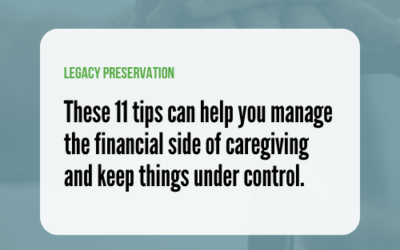Retirement Planning
Social Security: The Important Questions
Those “How much do you know about Social Security?” quizzes you see online are fun and interesting, but the bigger questions you should be asking are those that can help you get the most out of the program.
Do You Know How Much Social Security You Stand to Receive Over Your Lifetime?
People in their early 60s who are thinking about when to start Social Security tend to focus on the here and now. They understand that if they wait until 70 to claim Social Security they’ll get a higher monthly benefit, but it may not seem enough higher to justify giving up all those checks between ages 62 and 70.
The better way to think about Social Security is in terms of lifetime benefits over both spouses’ respective life expectancies. When we run claiming scenarios using our
Savvy Social Security Planning Calculators for Bob and Betty, our hypothetical couple with PIAs of $3,000 and $1,800 and life expectancies of 85 and 95, respectively, lifetime benefits could range from $1.7 million to $2.4 million depending on when they claim. Most people have no idea they stand to receive this much Social Security over their lifetime— or that there would be such a disparity in total benefits between early and later claiming.
Do You Know How Your Social Security Benefit Will Be Affected if You Stop Working in Your 50s – or if You Keep Working Into Your 70s?
Many people still don’t understand the connection between earnings and benefits. They look at their Social Security statement and think the amount shown for a claim at FRA or age 70 is the amount they’ll get, even if they stop working at, say, 55 or 58. Not true.
Those estimates presume continued earnings at the same rate until claiming age. If you stop working early, your benefit will be lower than the amount shown on your statement. Conversely, if you keep working into your 70s, your benefit may increase. SSA continues to record your earnings and if a new year of higher earnings replaces an older year of lower earnings
on your 35-year earnings record, your benefit will be adjusted upward. This usually takes place in October with the benefit bump retroactive to January.
Do You Know How Much Social Security Your Spouse Stands to Receive If You Pass Away?
Many people understand that Social Security pays benefits to surviving spouses, but they are not sure how it works, or if there’s anything they can do now to maximize that benefit. The important thing to know here is that if you are the higher-earning spouse, you can maximize your surviving spouse’s future benefit by claiming your own benefit at 70. It’s like a free life insurance policy which you can increase in value by simply waiting until age 70 to claim. In the case of Bob and Betty, if Bob dies at age 85, Betty’s monthly
survivor benefit would be $3,535 if Bob had claimed at 62, versus $6,103 if he had claimed at 70. What if your spouse dies first? Then you will have maximized your benefit for yourself. Either way, by having the higher- earning spouse claim at 70, as a couple you will have maximized the higher benefit over the lifetime of the longer-lived spouse.
For Young Widows: Do You Know How Much Your Social Security Survivor Benefit Will Be or When You Should Claim It?
Widows under full retirement age are susceptible to bad advice from well-meaning people who say they should take their survivor benefit as soon as possible, as early as age 60. But this locks in a lower amount for life. Plus, if the widow is still working, some or all of those benefits may be withheld for the earnings test. Sometimes it pays to wait until full retirement age to start the survivor benefit. Also, widows who also qualify for benefits on their own work record have an advantage in that they can start with one benefit and switch to the other—but it’s important to know how to do this. You’ll want to take the lower amount first and save the higher benefit for later because that’s the amount you’ll receive throughout your lifetime.
For Divorced People: Will You Know When Your Ex Passes Away and Why It Matters?
If you are divorced after ten years of marriage, you may know that it is possible to claim Social Security based on your ex-spouse’s record—but not if your own benefit is higher than 50% of your ex’s PIA. However, when your ex dies, you may become entitled to a divorced-spouse survivor benefit equal to 100% of your ex’s benefit—and this may be more than yours. This is why it’s important for you to keep tabs on your ex—so you will know when he passes away and that you can go ahead and apply for your divorced-spouse survivor benefit. His death will already have been reported to SSA. All you need to provide is your divorce decree showing that you were married at least ten years. At the time you apply you must either be unmarried or, if you are married, the remarriage must have taken place after you turned 60.
Elaine Floyd, CFP® is Director of Retirement and Life Planning for Horsesmouth, LLC, where she helps people understand the practical and technical aspects of retirement income planning.

SERVICES WE OFFER RELATED TO THIS TOPIC
The information contained in this post is for general use and educational purposes only. However, we do offer specific services to our clients to help them implement the strategies mentioned above. For specific information and to determine if these services may be a good fit for you, please select any of the services listed below.
The 4x4 Financial Independence Plan ℠
The Smart Social Security Benefits Maximizer/Retirement Healthcare Expense Estimator ℠
Retirement Planning
Coaching and Consulting
EP 0012. The Three Generations of Annuities
The Financial Independence Now Podcast Hosted by Randy LuebkeIn Episode 12 of the Financial Independence Now podcast,...
11 Financial Tips to Make Caregiving Easier
Tax Planning Caregivers generally tend to their elderly/ disabled family members as a labor of love, but it can also...
EP 0011. Budgeting for Dummies
The Financial Independence Now Podcast Hosted by Randy LuebkeIn this episode of Financial Independence Now, host Randy...
Investment Advisory Services are offered through Lifetime Financial, Inc., a Registered Investment Advisory. Insurance and other financial products and services are offered through Lifetime Paradigm, Inc. or Lifetime Paradigm Insurance Services. Neither Lifetime Financial, Inc. nor Lifetime Paradigm, Inc., or its associates and subsidiaries provide any specific tax or legal advice. Only guidance is provided in these areas. For specific recommendations please consult with a qualified, licensed Advisor. Past performance is no guarantee of future results. Your results can and will vary. Investments are subject to risk, including market and interest rate fluctuations. Investors can and do lose money and, unless otherwise noted, they are not guaranteed. Information provided is for educational purposes only and is not intended for the sale or purchase of any specific securities product, service or investment strategy. BE SURE TO FIRST CONSULT WITH A QUALIFIED FINANCIAL ADVISER, TAX PROFESSIONAL, OR ATTORNEY BEFORE IMPLEMENTING ANY STRATEGY OR RECOMMENDATION DISCUSSED HEREIN.
This message is intended for the use of the individual or entity to which it is addressed and may contain information that is privileged, confidential and exempt from disclosure under applicable law. If you are not the intended recipient, any dissemination, distribution or copying of this communication is strictly prohibited. If you think you have received this communication in error, please notify us immediately by reply e-mail or by telephone (800) 810-1736 and delete the original message.
This notice is required by IRS Circular 230, which regulates written communications about federal tax matters between tax advisors and their clients. To the extent the preceding correspondence and/or any attachment is a written tax advice communication, it is not a full "covered opinion." Accordingly, this advice is not intended and cannot be used for the purpose of avoiding penalties that may be imposed by the IRS.





